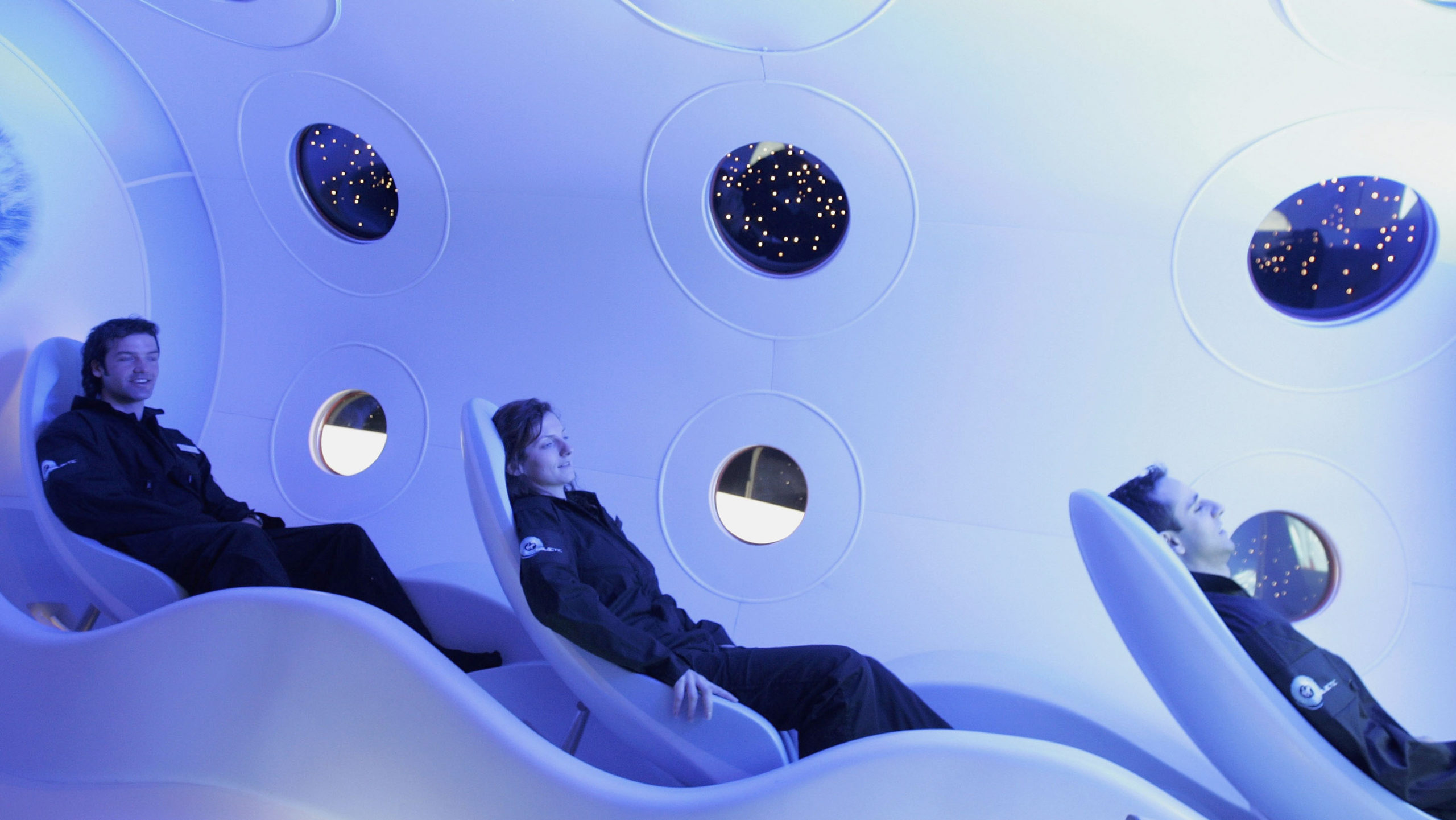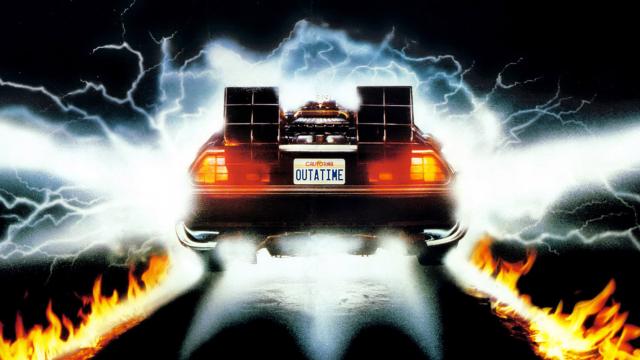H.G. Wells coined the term “time machine” all the way back in 1895, just a decade before Einstein published his groundbreaking paper on special relativity that would begin show how time travel is possible. The fascination with using technology to look into the past or the future hasn’t faded in the last century. And as the thought experiment endures, you have to wonder: When will we finally do it — and why?
Kip Thorne, consulting scientist on Interstellar, says it doesn’t really matter, as long as we try.
“First, let me say that [time travel] already is happening,” Thorne said in a recent interview, when I asked him about how we might travel forward in time. “The Global Positioning System (GPS) I use to navigate my smartphone has to deal with that. Time is flowing more slowly for us than it is for something on the satellite.”
That might sound obvious if you’ve got a passing familiarity with the basics of time. Based on the theory of relativity, time runs more quickly or more slowly for different objects thanks to the effect of time dilation. Based on Einstein’s theories of relativity, we know that the passing of time varies for different objects depending on the gravitational pull and the speed the objects are moving. That’s why a GPS system must make slight adjustments to its clock based on the fact that time flows more quickly for satellites zooming around the Earth in orbit. You can read a full explanation of how that works here and here.
But that’s the time travel lite. What about the real sci-fi stuff?
Let’s get science fictional
When we talk about time travel we’re generally talking about a more ambitious shift. Like, say: When will we be able to jump one year in to the future? Or put a different way: When we will accomplish the real sci-fi time travel that H.G. Wells got people thinking about over a century ago?
The practical reasons for doing this could be anything. Let’s say it’s a very, very expensive and strange form of tourism. Maybe a very rich, very impatient guy wants to see if the 2016 Olympics in Rio de Janeiro will be as big a disaster as we think it will be. That’s a silly reason, but it’s not like leapfrogging a year requires much justification beyond itself. And it gives us a good framework in which we can consider the realistic possibilities of time travel — specifically, the type of time travel enabled by time dilation — and the technology that it would require.
“To make this effect big enough that it would have some exciting consequences,” Thorne went on to explain, “would require either a big black hole or the ability to travel close to the speed of light.”
If you’ve seen Interstellar or taken an introductory astrophysics class, you’ll know how a black hole can enable time travel. The immense gravitational pull simply amplifies the that time dilation effect. So if Earth’s gravity can cause time to move a fraction of a second more quickly on a satellite than on the surface, a black hole’s gravity can cause time to move by years or more. Travelling the speed of light produces the same results, except with a different variable.
Taking a trip to the Olympics of the future would indeed be exciting! But it would also be a little bit pointless just to use time travel as a hyper-expensive form of tourism. Shouldn’t a miraculous feat like time travel benefit all of humanity? Meh. A big, immediate payoff is not necessarily the point, Thorne stressed. Sometimes we need to chase what might seem like pointless goals in order make important — if incremental — advances in our scientific understanding of how the universe works.
Let’s put it a different way. A lot of people didn’t think there was much of a point in going to the moon back during the Apollo era. Why spend all of this money for three men to go stand on a rock a really long ways away? Well, as we know, the research that went into the early NASA missions — and especially the Apollo missions — provided us with invaluable advances in science and technology. So it’s not just the thought experiment that matters. It’s actually doing it.
When Kennedy announced the Apollo missions, his time frame was years, not centuries. Thorne says that we might be millennia away from being able to travel close to the speed of light or fly to another star system where we might find a black hole. In other words, it might be thousands of years before we actually get that big time travel pay off. So why bother?
Kennedy said it well when he proposed the Apollo program to Congress in 1961. “Now it is time to take longer strides — time for a great new American enterprise — time for this nation to take a clearly leading role in space achievement, which in many ways may hold the key to our future on Earth.” We’re just talking about longer strides. Much longer strides.
Let’s get scientific
It’s a familiar argument by now, but it’s worth repeating: Space travel and the research it enables are more important than ever. The same basic reasons why it’s important aren’t terribly different than they were when we landed on the moon, but the scientific questions we hope to answer are certainly more advanced. Even chasing the almost impossible question of travelling through a worm hole or back in time — feats that most theoretical physicists think are unlikely — help us better understand the forces of nature.
“[Pursuing these questions] contributes to physics in a major way,” Thorne said. “It’s unlikely but the bottom line is that the answer’s not in.” He added, “The very process of trying to sort out whether it would be possible to have a worm hole or go back in time rubs our nose deeply in the laws of physics.”

In the same breath, Thorne praised people like Elon Musk — he named Musk specifically — for pushing this scientific exploration forward with private space travel ventures. And despite Virgin Galactic’s failed promises, Richard Branson surely deserves credit for being a pioneer in this arena as well. Now that we live in an era where many people question the value of space exploration, we need more people to remind us that it benefits all mankind to work on problems that won’t be solved in this lifetime, or even this millennium.
Thorne, a scientist who’s been doing just that for decades, could not have been more enthusiastic about that point. Time travel is a hard problem, but it’s a problem worth trying to solve — even if we know we’ll probably fail for the foreseeable future. Interstellar travel is in the same column.
“It’s going to be a very long time before we have technology to travel beyond our solar system [but] we should be doing that,” he said with purpose. “And we should be doing it with that type of enthusiasm we had in the Apollo missions.”
Because think about it: One day we might actually need to get off this rock for good. It might even require a little bit of time travel. There might be a worm hole involved. We can’t predict the future until we’ve invented the technology that will take us there.
Pictures: Universal Studios / Getty
